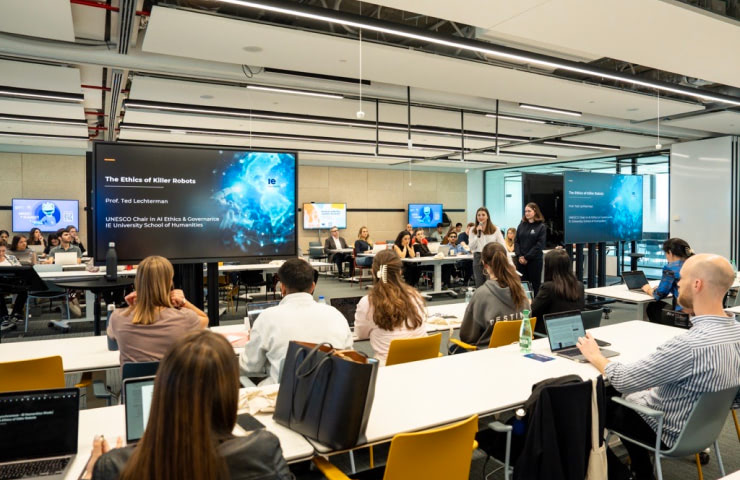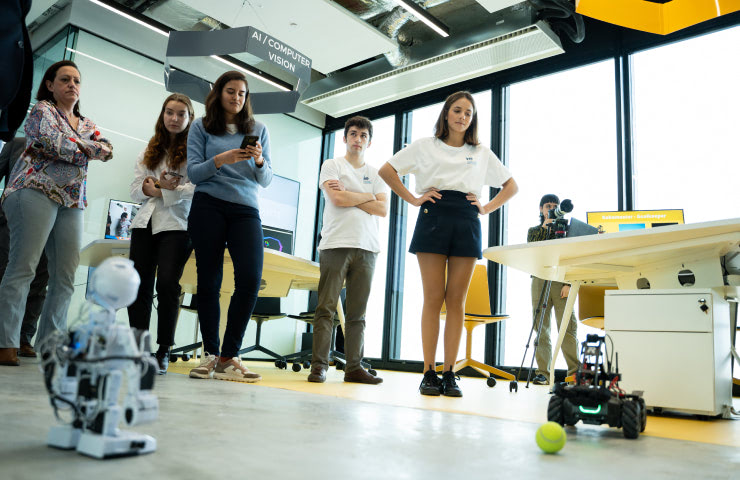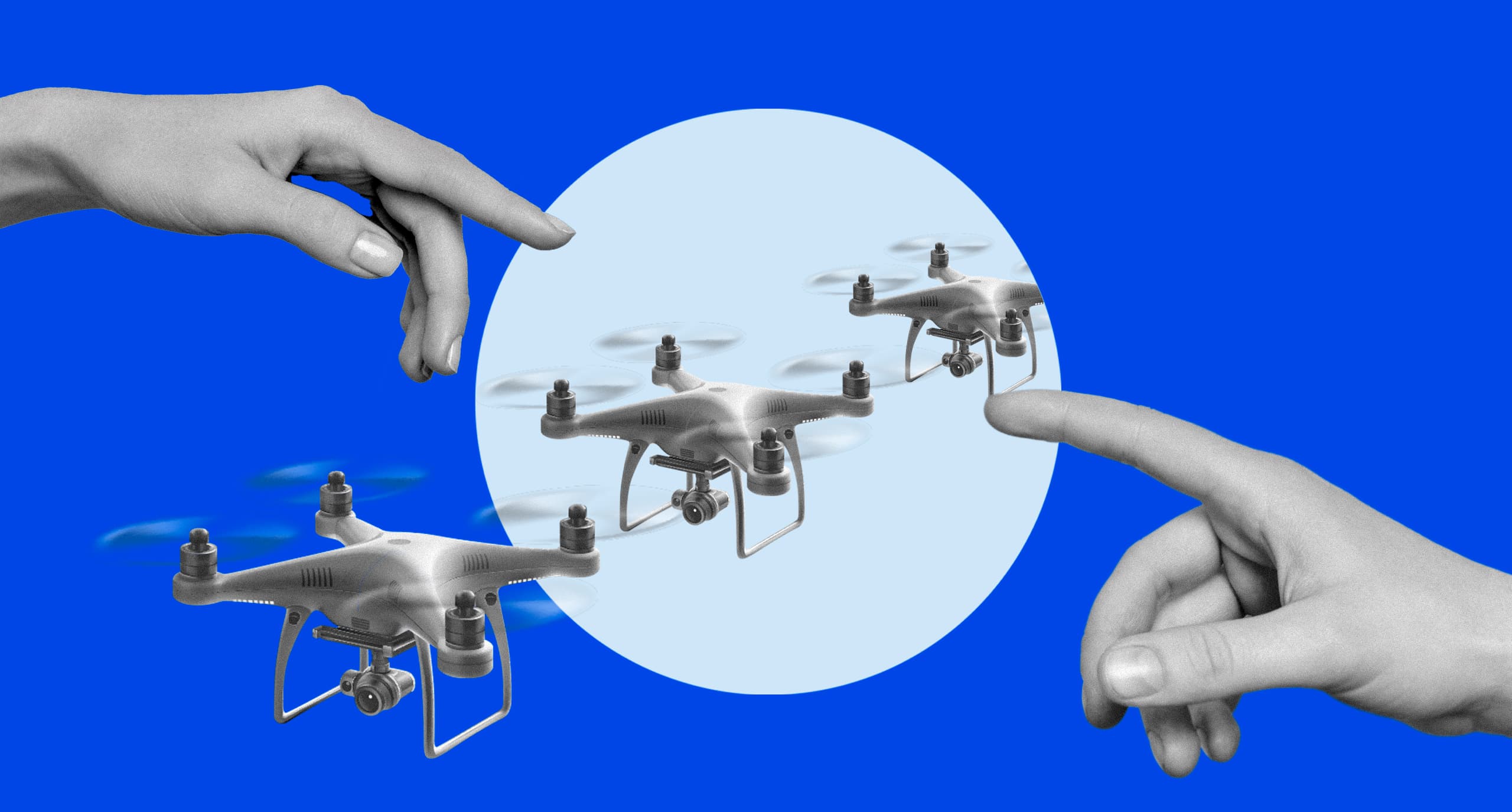In today’s highly digitalized world, the importance of literature, philosophy, history and the arts in a professional context may not be that obvious. But the humanities remind us what it is to be human in the tech age, providing a holistic mindset that makes us much better at navigating the modern world’s complexities through critical thinking, empathy and communication skills.
That’s why the humanities form an integral part of our academic offering—they’re actually more important now than ever. And studying the humanities can open up career paths even in tech-first disciplines, empowering you to blend tradition and innovation to drive change and make the world a better place.
The meaning and importance of humanities in technology
If you aspire to understand the human experience, explore novel ideas, embrace cultures or learn robust critical and analytical skills, you’ll find everything you’re looking for in the humanities. Over the centuries, these disciplines have helped us understand the human experience through our thoughts, emotions and social interactions. And it’s these disciplines that still inform our understanding as we innovate and shape emerging technologies.
Not only do the humanities help us develop a better understanding of ourselves, they also enhance our ability to create technology that respects and reflects our human value by leveraging the benefits of critical thinking, cultural awareness, creativity, innovation and civic engagement. And, of course, they help us address tech’s challenges; not introducing our human preconceptions and biases into AI algorithms, for example.
So there are a broad array of opportunities in the tech industry where the skills gained in studying the humanities will be extremely valuable.

Humanities in technology-focused degrees
So-called soft skills, of course, are valuable in any career path. But graduates who can embrace the humanities in technology, both for those challenges and for the opportunities it affords in building our future, are particularly well set up to be the changemakers the world needs.
In a volatile world right now, studies have shown that the resilience and adaptability of humanities graduates helps them navigate challenging labor markets. So what skills do you gain if you study the humanities in a tech-first professional ecosystem?
• Critical Thinking: Analyze and evaluate different arguments or evidence, a skill essential in tech innovation.
• Research: Humanities students are proficient in empirical research, a foundation for developing new technologies.
• Communication: Successful humanities students possess strong writing and verbal communication skills, crucial for tech teams.
• Analytical Skills: Interpret texts, data, and cultural artifacts—skills directly applicable to analyzing tech trends and leveraging data for strategic decision-making.
• Cultural Literacy: Understanding and appreciating different cultures is vital for creating inclusive technology and communicating on a global level.
• Problem Solving: Tackling complex issues is a common trait among humanities students, making them adept in tech problem-solving.
What subjects do humanities students study?
The humanities are inherently broad due to their interdisciplinary nature. That’s what makes the humanities in technology relevant in every professional sector, and highly versatile. Some of the most common subjects for humanities students include:
• Literature: The study of novels, poetry and plays enhances empathy and understanding of the human experience, important for designing new technology around the humans who will use it.
• Sociology: Studying human behavior, institutions and structures helps inform the development of technology that benefits society.
• History: Understanding historic events helps predict and shape technological trends.
• Languages: Being fluent in more than one language heightens your communication skills and cultural awareness, invaluable for multinational companies in tech and every other sector.
• Arts: This type of creative expression helps humanities students understand cultural and historical impact, applicable in fields like gamification and digital imaging.

Modern degrees, of course, also address the importance of humanities in technology by blending these skills with subjects such as ethics in emerging tech, statistics, marketing in the arts and programming fundamentals.
What sort of opportunities are available in humanities and technology?
Wherever your own professional ambitions lie, there are numerous career paths in today’s market for profiles that leverage the humanities in technology.
• Tech Ethics: Analyze the ethical implications of new technologies, ensuring they align with human values.
• UX Design: Use your understanding of human behavior and culture to design intuitive and inclusive user experiences.
• UX Design: Use your understanding of human behavior and culture to design intuitive and inclusive user experiences.
• AI Specialism: Apply critical thinking and cultural literacy to develop AI systems that are ethical and culturally sensitive.
• Digital Humanities Research: Study how digital tools can enhance our understanding of humanities disciplines.
• Tech Policy Analysis: Research and analyze legislation related to technology, ensuring policies promote societal well-being.
Leveraging the humanities in technology for career success
Positions merging humanities with technology depend on critical thinking, cultural literacy, and technical know-how. Some examples of sought-after jobs that blend humanities and tech skills are:
• Chief Information Officer (CIO): In this dynamic role, you oversee the tech infrastructure and standards of an organization, making sure everything aligns with business goals and ethical responsibilities. In the United States as of 2024, the average salary for a CIO is around $228,440 per year.
• Digital Marketing Manager: Manages online marketing strategies, utilizing their skills in data analytics and their understanding of human behavior to create their campaigns. Typical salaries for Digital Marketing Managers in the United States are between $108,680 and $142,274.
• Data Scientist: Apply big data to uncover patterns and unique insights for clients, leveraging data analysis techniques and humanities-related research. Labeled “the sexiest job in the 21st century” by Harvard Business Review, the average Data Scientist salary in the United States is between $108,942 and $133,690.
• Digital Archivist: By working with advanced digital tools and databases, this role ensures that digital assets are accessible and properly maintained for future use. Normal salaries for digital archivists range from $69,648 to $99,015.
• Content Strategist: Here you can expect to develop and manage digital content strategies, combining your technological expertise with sophisticated communication and analytical skills. Salaries for content strategists in the United States are between $66,942 and $84,061.
Humanities at the heart of our approach
At IE University, a humanistic approach to education is one of our core values—our partnership with UNESCO seeks to build a more human digital economy and provides outstanding opportunities to our students through internships, capstone projects and visits to the institution.
Our Dual Degree in Business Administration and Humanities at IE University, meanwhile, combines strategic thinking, cutting-edge tech skills and entrepreneurship with an interdisciplinary approach to the humanities, preparing students to become the culturally competent and compassionate leaders of a better world.
Are you ready to understand the impact of humanities in technology?
Broaden your horizons at IE School of Humanities and prepare yourself for a successful career in any sector.






